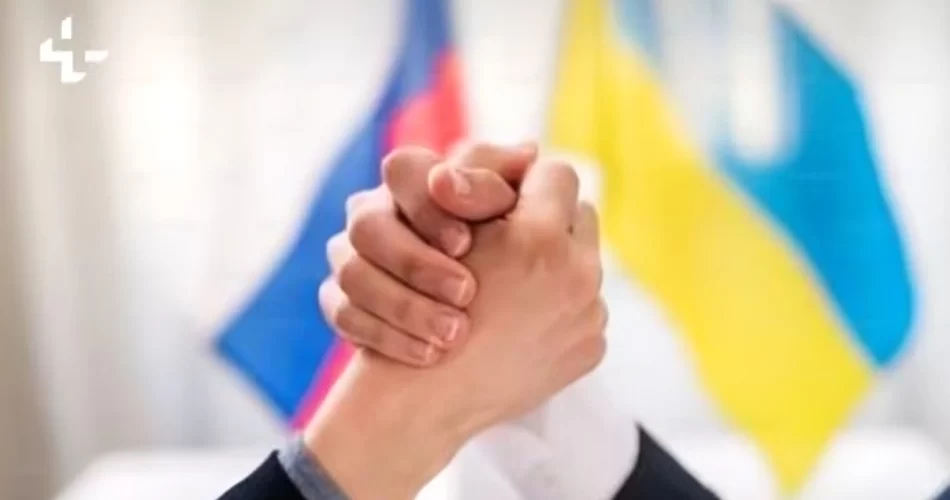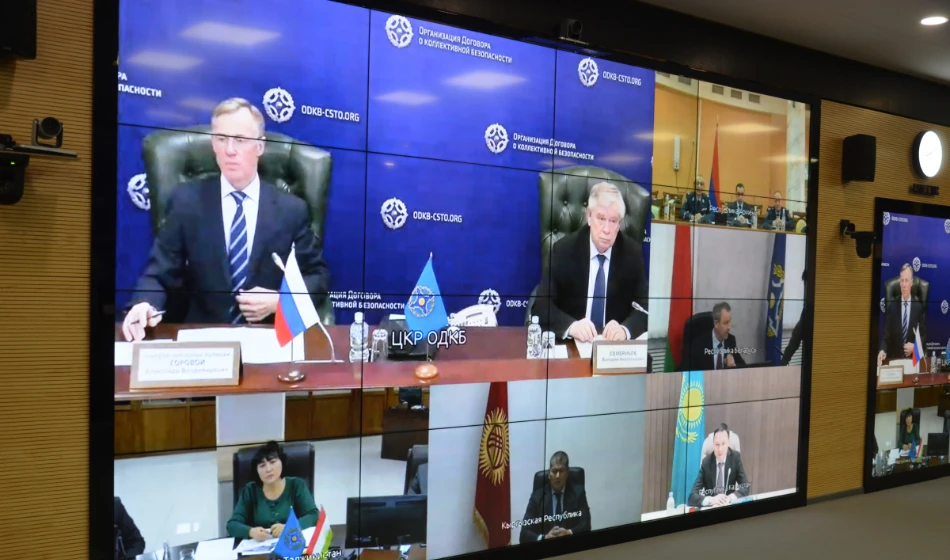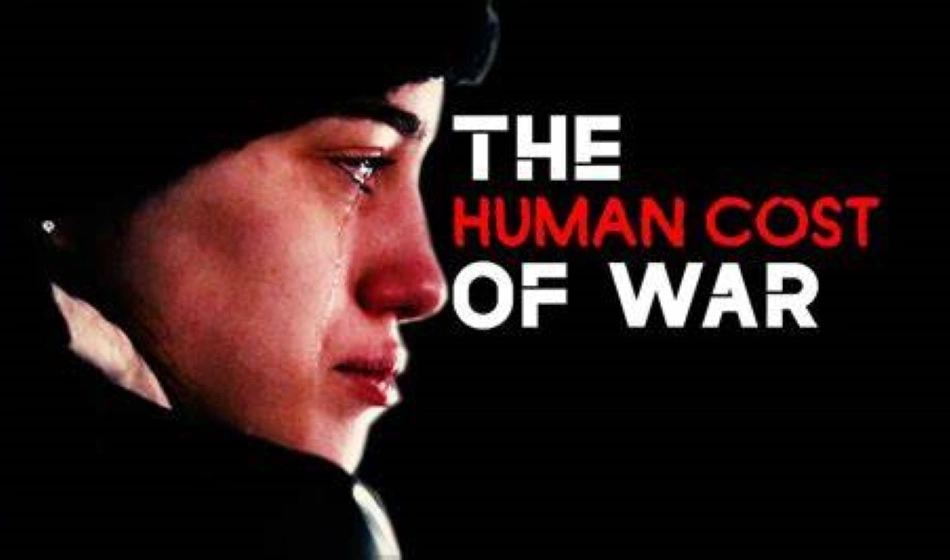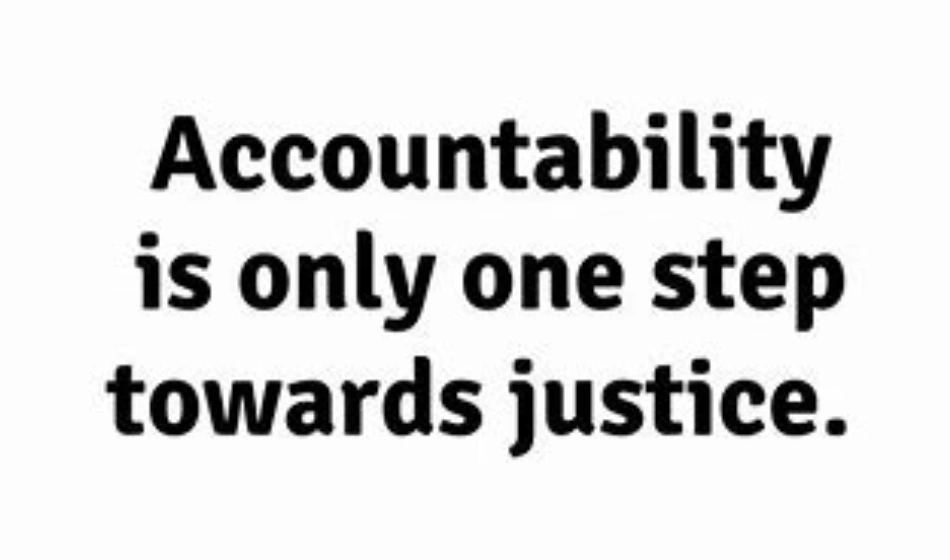Unconventional Solutions for Ending the Ukraine-Russia Crisis: Beyond Traditional Diplomacy

The ongoing Ukraine-Russia conflict has presented a complex geopolitical challenge with far-reaching implications. The conflict has plunged Europe into its gravest security crisis since World War II. Traditional diplomatic and military strategies have so far failed to resolve the standoff. While efforts like peace talks and sanctions remain crucial, exploring unconventional pathways to de-escalate tensions and pave the way for lasting peace is equally important. While existing frameworks have proven ineffective in ending the conflict, unconventional solutions offer a glimmer of hope. This article explores innovative strategies for resolving the Ukraine-Russia standoff, examining their potential benefits, challenges, and ethical considerations.

The Role of Technology in Mediating the Conflict: Unconventional Solutions
The digital age offers unprecedented opportunities for facilitating communication and fostering dialogue between conflicting parties. This section explores innovative technological solutions for mitigating the Ukraine-Russia crisis:
- AI-powered Dialogue Platforms: Utilizing artificial intelligence to create neutral platforms for open dialogue between Ukrainian and Russian leaders. These platforms could analyze vast amounts of data, identify common ground, and propose potential solutions.
- Crowdsourced Diplomacy: Harnessing the power of social media and online communities to gather public opinion, identify potential solutions, and build pressure for peaceful resolutions.
- Cybersecurity Cooperation: Establishing international cybersecurity cooperation to prevent the escalation of the conflict through cyberattacks and ensure a secure communication environment for dialogue and negotiation.
Exploring Alternative Negotiation Frameworks
The traditional diplomatic framework has failed to achieve meaningful progress. This section explores alternative negotiation frameworks that may provide a breakthrough:
- Multilateral Negotiation: Involving a broader group of international stakeholders, including neutral nations, regional organizations, and key international institutions, to promote consensus building and facilitate a more balanced approach to negotiations.
- Track II Diplomacy: Encouraging the involvement of non-governmental organizations, academics, and experts to create informal dialogues and build trust between conflicting parties.
- “Track Three” Diplomacy: Engaging religious leaders, civil society organizations, and local communities to foster reconciliation and address the underlying grievances that fuel the conflict.
Reframing the Narrative Through “Shared Humanity”
The conflict has fueled a narrative of “us vs. them,” intensifying divisions and hindering potential solutions. This section proposes strategies for reframing the narrative:
- Promoting “Shared Humanity” Narratives: Focusing on common experiences, values, and aspirations that unite Ukrainians and Russians, emphasizing their shared cultural heritage and historical connections.
- Highlighting Human Costs of War: Amplifying narratives of individual suffering and the impact of war on ordinary citizens, fostering empathy and understanding across borders.
- “Truth and Reconciliation” Commissions: Establishing independent commissions to investigate war crimes, human rights abuses, and the historical context of the conflict, leading to accountability and healing.
Addressing the Root Causes of the Conflict
The conflict in Ukraine is rooted in deep-seated historical grievances, political disputes, and economic inequalities. This section explores strategies for addressing the underlying causes:
- Addressing Historical Disputes: Establishing a historical truth and reconciliation process to acknowledge past wrongs and build a foundation for future cooperation.
- Promoting Economic Cooperation: Developing joint economic initiatives that benefit both countries and create incentives for peace and stability.
- Addressing Identity Politics: Recognizing the diverse identities and aspirations within Ukraine and Russia and fostering dialogue and understanding across cultural and linguistic divisions.
Addressing the Root Causes of the Conflict
The conflict in Ukraine is rooted in deep-seated historical grievances, political disputes, and economic inequalities. This section explores strategies for addressing the underlying causes:
- Addressing Historical Disputes: Establishing a historical truth and reconciliation process to acknowledge past wrongs and build a foundation for future cooperation.
- Promoting Economic Cooperation: Developing joint economic initiatives that benefit both countries and create incentives for peace and stability.
- Addressing Identity Politics: Recognizing the diverse identities and aspirations within Ukraine and Russia and fostering dialogue and understanding across cultural and linguistic divisions.
The Role of International Institutions and Global Powers
The international community plays a crucial role in resolving the conflict. This section explores the potential contributions of global institutions and powers:
- UN Security Council Reform: Reforming the UN Security Council to reflect the realities of the 21st century, ensuring inclusivity and effective multilateral action.
- Strengthening International Law: Enforcing international law to prevent violations of sovereignty and ensure accountability for perpetrators of war crimes.
- Global Economic Sanctions: Applying targeted economic sanctions to pressure Russia to cease hostilities and pursue a peaceful resolution.
The Ethical Considerations and Potential Risks of Unconventional Ideas
While innovative strategies offer potential solutions, it’s crucial to consider their ethical implications and potential risks:
- Preventing the Abuse of Technology: Ensuring that AI-powered platforms are used responsibly and avoid manipulation or the spread of misinformation.
- Protecting Human Rights: Guaranteeing the protection of human rights throughout the negotiation process and in any proposed solutions.
- Avoiding Unintended Consequences: Thoroughly evaluating the potential impact of unconventional ideas on regional stability and international security.
Building a Sustainable Peace: Unconventional Solutions
Finding a lasting solution to the Ukraine-Russia conflict requires a multifaceted approach that addresses both immediate and long-term needs. This section outlines key principles for building a sustainable peace:
- Security Guarantees: Providing Ukraine with security guarantees from the international community to deter future aggression.
- Economic Recovery: Investing in the reconstruction of Ukraine’s infrastructure and economy to promote stability and prosperity.
- Dialogue and Reconciliation: Creating platforms for dialogue and reconciliation between Ukrainians and Russians to foster mutual understanding and forgiveness.
The Path to Peace: A Roadmap for Resolving the Ukraine-Russia Conflict
Empowering Civil Society and Grassroots Initiatives: Unconventional Solutions
While international actors play a crucial role, it is crucial to recognize the power of civil society and grassroots initiatives in fostering peace and reconciliation. This section emphasizes their role:
- Supporting Independent Media: Promoting independent media outlets in Ukraine and Russia to provide accurate information and counter-propaganda.
- Facilitating Cross-Border Collaboration: Encouraging collaboration between civil society organizations from both countries to build bridges of understanding and trust.
- Promoting Cultural Exchanges: Supporting cultural exchanges and educational programs that promote empathy and shared experiences between Ukrainians and Russians.
The Role of Technology in Fostering Peace
Technology can be a powerful tool for peacebuilding and conflict resolution. This section explores its potential:
- Leveraging Social Media for Peacebuilding: Utilizing social media platforms to spread messages of peace, tolerance, and understanding.
- Developing AI-Powered Mediation Tools: Utilizing AI to facilitate dialogue and mediation between conflicting parties, analyzing data to identify common ground and potential solutions.
- Promoting Open Access to Information: Ensuring access to accurate and unbiased information to counter misinformation and propaganda.
Building a Sustainable Future: Beyond the Conflict
Finding a lasting solution requires addressing the underlying societal, political, and economic challenges that have contributed to the conflict. This section emphasizes the importance of:
- Strengthening Democratic Institutions: Supporting democratic reforms in both Ukraine and Russia to ensure accountability, transparency, and the rule of law.
- Promoting Inclusive Economic Growth: Developing economic policies that benefit all citizens and reduce inequalities that fuel social unrest.
- Investing in Education and Human Development: Investing in education and human development to create a society that values peace, tolerance, and understanding.
The Role of International Cooperation and Partnerships
Resolving the conflict requires a concerted effort from the international community. This section highlights the importance of:
- Developing a Comprehensive Peace Framework: Creating a comprehensive peace framework that addresses the immediate and long-term needs of the conflict.
- Building Global Partnerships: Establishing international partnerships to support peacebuilding efforts in Ukraine and the wider region.
- Mobilizing Global Resources: Investing financial resources and expertise to support peacebuilding initiatives, humanitarian aid, and reconstruction efforts.
Addressing the Human Cost of War

Beyond the political and economic dimensions, the conflict has a devastating human cost. This section emphasizes the need to prioritize:
- Humanitarian Aid and Relief: Providing immediate and sustained humanitarian assistance to those affected by the conflict, including food, water, shelter, medical care, and psychological support.
- Protecting Civilians: Ensuring the safety and protection of civilians caught in the crossfire, including women, children, and the elderly.
- Addressing the Displacement Crisis: Providing support and resources for refugees and internally displaced persons, including temporary housing, food, healthcare, and education.
Accountability and Justice

Ensuring accountability for war crimes and atrocities committed during the conflict is essential for healing and preventing future conflicts. This section highlights the importance of:
- Investigating War Crimes: Conducting thorough and independent investigations into alleged war crimes and other violations of international law.
- Holding Perpetrators Accountable: Bringing those responsible for war crimes to justice through national and international legal processes.
- Establishing Mechanisms for Reparations: Providing mechanisms for victims to receive reparations for the harm they have suffered.
Building Trust and Reconciliation
Reconciliation is a complex process that requires time, patience, and commitment from all parties involved. This section emphasizes the importance of:
- Facilitating Dialogue and Understanding: Creating safe spaces for dialogue and understanding between Ukrainians and Russians, building bridges of empathy and forgiveness.
- Promoting Cultural and Educational Exchanges: Encouraging cultural and educational exchanges between the two countries to foster mutual understanding and respect.
- Addressing Historical Narratives: Acknowledging and addressing historical grievances and narratives that have contributed to mistrust and conflict.
The Role of International Institutions
International institutions play a crucial role in supporting peacebuilding efforts and ensuring accountability for violations of international law. This section highlights their responsibilities:
- Strengthening the United Nations: Reinforcing the capacity of the United Nations to effectively respond to conflict and uphold international law.
- Enhancing the Role of the International Criminal Court: Ensuring the International Criminal Court’s independence and effectiveness in investigating and prosecuting war crimes.
- Coordinating International Assistance: Facilitating the coordination of international assistance and resources to support peacebuilding and humanitarian efforts.
The Importance of Regional Security
Securing peace in Ukraine necessitates addressing broader security concerns in the region. This section outlines key priorities:
- Rebuilding Trust and Confidence: Developing mechanisms to rebuild trust and confidence between Russia and its neighbors, promoting dialogue and transparency.
- Addressing Security Concerns: Addressing legitimate security concerns of all parties in the region through a comprehensive and transparent approach.
- Strengthening Regional Cooperation: Promoting cooperation and dialogue among regional actors, focusing on shared interests and peaceful resolution of disputes.
The Role of Civil Society
Civil society plays a vital role in shaping public opinion, promoting reconciliation, and providing essential services. This section highlights their crucial role in:
- Empowering Civil Society: Supporting and empowering civil society organizations working on peacebuilding, humanitarian aid, and conflict resolution.
- Facilitating Dialogue and Reconciliation: Creating platforms for civil society dialogue and exchange between Ukrainians and Russians, fostering understanding and forgiveness.
- Advocating for Peace and Justice: Amplifying the voices of those advocating for peace, justice, and human rights, putting pressure on governments and institutions to act.
The Role of Technology
Technology can play a significant role in supporting peacebuilding efforts, promoting transparency, and fostering dialogue. This section emphasizes:
- Leveraging Technology for Peacebuilding: Utilizing technology for communication, data collection, monitoring, and early warning systems to support peace efforts.
- Countering Disinformation and Hate Speech: Combating disinformation and hate speech online to promote accurate information and build bridges of understanding.
- Promoting Open and Transparent Governance: Utilizing technology to enhance transparency and accountability in government institutions, fostering public trust.
The Importance of a Long-Term Vision
The path to peace requires a long-term vision that goes beyond immediate conflict resolution. This section highlights the need for:
- Investing in Reconstruction and Development: Supporting the reconstruction of Ukraine and its economy, investing in sustainable development and social cohesion.
- Addressing Root Causes of Conflict: Identifying and addressing the root causes of the conflict, including historical grievances, economic disparities, and political instability.
- Promoting Democracy and Human Rights: Supporting democratic institutions, strengthening human rights protections, and fostering a culture of peace and tolerance.
Ensuring Accountability and Justice
Achieving sustainable peace requires addressing past injustices and holding perpetrators accountable for their actions. This section underscores the importance of:
- Establishing Independent Investigations: Ensuring independent and impartial investigations into war crimes, crimes against humanity, and other violations of international law.
- Prosecuting Perpetrators: Holding individuals responsible for their actions, regardless of their position or nationality, through fair and transparent legal processes.
- Providing Justice for Victims: Providing redress and support to victims of the conflict, including access to justice, psychological support, and restitution.
Addressing the Displaced and Refugees
The conflict has displaced millions of Ukrainians, creating a humanitarian crisis requiring immediate and sustained attention. This section emphasizes:
- Providing Humanitarian Assistance: Delivering emergency aid, shelter, food, and medical care to displaced Ukrainians and refugees.
- Facilitating Safe Return and Integration: Supporting the safe return of displaced Ukrainians to their homes and assisting with their reintegration into society.
- Addressing the Long-Term Needs of Refugees: Providing long-term support and opportunities for refugees, including access to education, employment, and social services.
Building a Shared Future
The path to peace requires a shared vision for the future, one that fosters reconciliation, understanding, and cooperation. This section highlights:
- Promoting Dialogue and Reconciliation: Creating platforms for dialogue and reconciliation between Ukrainians and Russians, fostering empathy and forgiveness.
- Investing in Education and Cultural Exchange: Promoting educational and cultural exchanges between Ukrainians and Russians to bridge divides and foster mutual understanding.
- Building a Shared Identity: Developing a shared identity based on common values, shared history, and a commitment to peace and cooperation.
Addressing the Role of the Media
The media plays a significant role in shaping public opinion and influencing narratives surrounding the conflict. This section emphasizes the importance of:
- Promoting Responsible Reporting: Encouraging media outlets to adhere to journalistic ethics, providing accurate and balanced reporting, and avoiding inflammatory language.
- Combating Disinformation and Propaganda: Addressing the spread of disinformation and propaganda, fostering public media literacy and critical thinking skills.
- Promoting Dialogue and Understanding: Utilizing media platforms facilitates dialogue and promotes understanding between different perspectives.
Conclusion
The Ukraine-Russia standoff requires innovative and unconventional approaches to achieve a lasting resolution. By leveraging technology, fostering cultural exchanges, creating economic interdependence, and utilizing international mediation, it is possible to explore new pathways to peace. Implementing these strategies will require concerted effort, international cooperation, and a commitment to long-term peacebuilding.
While these approaches may not provide a quick fix, they can contribute to de-escalating tensions, fostering trust, and laying the groundwork for a lasting peace agreement. Ultimately, ending this conflict requires a collective effort from governments, civil society, the private sector, and international organizations. By embracing unconventional approaches and fostering a culture of dialogue and cooperation, we can work towards a brighter future for Ukraine, Russia, and the entire region.
Call to Action
Advocacy and Engagement
Here’s how you can contribute to peace efforts:
- Raise Awareness: Raise awareness about the importance of peace and the need for innovative approaches to conflict resolution. Social media, blogs, and other platforms are used to share information and mobilize support.
- Support Peace Organizations: Research and donate to credible organizations working on peacebuilding initiatives in Ukraine, such as the International Committee of the Red Cross (ICRC) or the United Nations Office for the Coordination of Humanitarian Affairs (OCHA).
- Engage in Citizen Diplomacy: Explore opportunities for citizen diplomacy initiatives that connect people from Ukraine and Russia. Platforms like online forums or cultural exchange programs can foster understanding and dialogue.
- Advocate for Responsible Media: Encourage media outlets to prioritize accurate and balanced reporting on the conflict. Support organizations are promoting media literacy education in Ukraine and Russia.
- Volunteer and Contribute: Volunteer your time and skills to peacebuilding organizations and initiatives. Contribute financially to support humanitarian aid, development programs, and reconciliation efforts.
- Contact Your Representatives: Let your elected officials know that you support peaceful solutions to the Ukraine-Russia conflict and urge them to engage in diplomacy and support organizations working for peace.
- Support Peace Initiatives: Advocate for and support local, national, and international peace initiatives. Engage with policymakers, diplomats, and civil society organizations to promote peaceful solutions.
By taking concerted action and working together, we can make a meaningful contribution to ending the Ukraine-Russia conflict and fostering a lasting peace. Let us stand in solidarity with the people of Ukraine and Russia, reaffirming our commitment to peace, justice, and human rights.
References
- Council of Councils. “Global Perspectives on Ending the Russia-Ukraine War.” Council on Foreign Relations.https://www.cfr.org/councilofcouncils/global-memos/global-perspectives-ending-russia-ukraine-war
- Atlantic Council. “How will the Russia-Ukraine war reshape the world? Here are four possible futures.”
- United Nations Environment Programme (UNEP). “Environmental Peacebuilding and the Role of Ecological Zones in Conflict Resolution.”
- Carnegie Endowment for International Peace. “The Conflict in Ukraine: A Status Report.”
- International Crisis Group. “Ukraine-Russia Conflict.”










